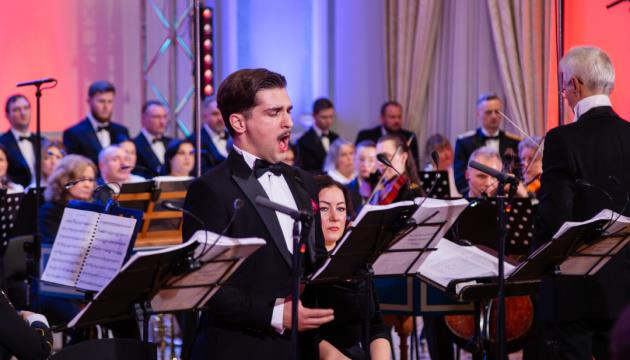
Chernivtsi Theater Announces Staging Of Bortniansky's First Opera 'Creonte'
In his comments to Ukrinform, Butniak said that participation in the project The Return of Dmytro Bortniansky's First Opera 'Creonte' is a landmark event for the theater he leads, since it represents its own return to the cultural and European map of theaters.
“The premiere of the staged production of Dmytro Bortniansky's opera Creonte is a major success for Ukrainian culture as a whole and carries a strong diplomatic mission. But for the Chernivtsi Music and Drama Theater, it is also a return - a return to the cultural and European map of theaters. Our building was erected 120 years ago with great architectural ambition, both as a marvel of architecture and a space meant for events significant to Europe and the world. Throughout history - under Austro-Hungarian, interwar Romanian, Soviet, and now independent Ukrainian periods - our theater has always been tied to European culture. That is why the world premiere of Creonte here is especially symbolic,” said Butniak.
Butniak added that such a large-scale project is a certain challenge for the Chernivtsi theater, since the opera genre has its own specificity and requirements - some of which the music and drama theater partly possesses, but some aspects have to be built from scratch in the creative and production process. According to the stage director, it was not an easy decision, but the theater enjoys strong support from the project's patrons, the community, and the artistic team, while the project itself is being implemented jointly with the Chernivtsi Regional Military Administration, the Chernivtsi Regional Council, and the Chernivtsi City Council.
The stage director explained that during the performance of Creonte there are about 50 people on stage at all times - soloists, choir members, and the orchestra - making it a large-scale production that involves many artists from outside the theater's regular staff. In particular, partners in the new staging include the Chernivtsi Regional Philharmonic named after Dmytro Hnatiuk, guest soloists from Kyiv and Lviv, and set designers from Kyiv.
The author of the project The Return of Dmytro Bortniansky's First Opera 'Creonte' is Herman Makarenko, conductor of the Taras Shevchenko National Academic Opera and Ballet Theatre of Ukraine
About 90% of the sets are being crafted in Kyiv, while costumes for soloists are sewn in Kyiv and costumes for the chorus and extras are being made at the Chernivtsi theater workshops.
The opera will be performed in Italian with Ukrainian subtitles, translated by Maurizio Aschero and Kateryna Sobolieva-Zorkina.
Following the October 3 and 5 premieres, Creonte is expected to enter the theater's repertoire, with more emphasis on local soloists and musicians.
Read also: London pushes back against Putin's favorite singer Anna NetrebkoAs Ukrinform reported, Dmytro Bortniansky's first opera Creonte was considered lost for nearly 250 years. In November 2024, musicologist Olha Shumilina discovered the manuscript in the Ajuda Library in Lisbon, and it was presented to the public for the first time in concert performance at Ukraine's Diplomatic Academy.
The opera was composed in Venice in 1776 by the 25-year-old composer under the mentorship of Italian maestro Baldassare Galuppi, who had brought him from St. Petersburg as his pupil. The libretto by Marco Coltellini is based on Sophocles' tragedy, though, unlike the original and the common opera traditions of the late 18th century, Bortniansky's work ends happily. The premiere took place at the Teatro San Benedetto and was slated for performances in other European countries, but the score mysteriously disappeared for nearly two and a half centuries.
Dmytro Bortniansky was born on October 28, 1751, in Hlukhiv, then part of the Cossack Hetmanate (now Sumy region, Ukraine). His father, Stefan Skurat (also known as Shkurat), was a Lemko-Rusyn Orthodox refugee from the village of Bartne in Poland's Małopolska province. After settling in the Hetmanate, he adopted the surname Bortniansky, after his native village, and served as a Cossack under Hetman Kyrylo Rozumovsky. Bortniansky's mother came from a Cossack family of Hlukhiv burghers, providing him with deep cultural and spiritual roots in the Hetmanate.
Photo: Serhii Bohun
Legal Disclaimer:
MENAFN provides the
information “as is” without warranty of any kind. We do not accept
any responsibility or liability for the accuracy, content, images,
videos, licenses, completeness, legality, or reliability of the information
contained in this article. If you have any complaints or copyright
issues related to this article, kindly contact the provider above.

















Comments
No comment